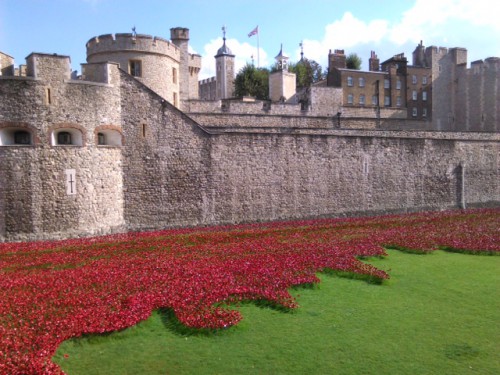8th November 2014 Athens, Greece
In Memoriam
I attend a lot of commemorative events. Greeks and Britons share much history, and we value its importance, feeling its presence at least dimly in our lives. We commemorate key moments of our history, because we are aware that the freedoms we enjoy were built on the endeavours of those who were here before us. We know that we stand – as the saying goes – on the shoulders of giants.
In October, I attended the annual commemoration at Pylos for the decisive Battle of Navarino, which took place on 20 October 1827, in the seventh year of the Greek War of Independence. On that day, a combined British, French and Russian fleet destroyed a much larger Turko-Egyptian armada, ending the menace of Ottoman sea power and enabling the land war in Greece to be won a few months later. Over 6000 Ottoman sailors died under sustained bombardment from ten ships of the line. The allied dead amounted to 174 sailors: brave men, who died for the freedom of Greece. (You can find my speech here.)
And this week, we are commemorating those who fell in the First and Second World Wars, and subsequent global conflicts. At Alimos tomorrow, alongside the Greek Minister of National Defence, the Chief of the Hellenic General Staff, and diplomatic representatives from allies and former foes alike, I shall lay a commemorative wreath of poppies.
This year’s acts of remembrance are more than usually significant. We are commemorating both the centenary of the start of the Great War and the 70th anniversary of the D-Day landings, which marked the start of the end of the Second World War. And here in Greece, of course, we have just passed the 70th anniversary of the end of the Nazi Occupation.
Although remembrance continues from year to year, enthusiasm for commemoration tends to rise and fall, like the economic cycle. When I was a boy, Armistice Day was no longer marked on 11 November and had become an act of church remembrance on the closest Sunday. I was a chorister and altar-boy, and so remember the careful preparations: the polishing of shoes, the washing and ironing of surplice and ruff, rehearsals. In the village where I grew up, the main act of remembrance took place around the war memorial. Remembrance Sunday was something very personal to our grandparents, and it brought us children closer to two generations of veterans. The dignity and sorrow of the old men and women, and the poignantly long inscription of village names from the Great War made a great impression on me.
In recent years, remembrance has recaptured the British public imagination more broadly. As the generations of veterans from the world wars pass away, we have needed definitively to mark the sacrifices of those by whose efforts our freedoms were won. In London, Her Majesty the Queen unveiled national memorials to the women of World War II and to Bomber Command.
Resurgent popular sentiment is not simply retrospective; it reflects also the continuing pain and cost of warfare and military engagement, as the current generation faces down the international threats that menace us. Since 2007, the national Armed Forces Memorial has memorialised all those killed on duty or through terrorist action since the Second World War. This year’s extraordinary sea of popies at the Tower of London testifies to the power of art to help us remember, and to understand something of the enormity and cost of industrialised warfare.
*******************
Of course, commemoration alone is not enough. As direct experience of the wars of the twentieth century fades into history, we need to educate new generations in what happened, and we need to preserve and strengthen reconciliation and peace between nations. In this, a true appreciation of the role that our servicemen and servicewomen continue to play in the maintenance and preservation of our freedoms and the balance of international order is essential.
This is very much my aim here in this Embassy.
We are, therefore, starting to think about how best to educate a generation of Britons and Greeks who may know nothing about the Macedonian Front here in Greece in the Great War. We aim to start our activities from next year onwards. Please follow our website as we publicise our plans.
At Alimos tomorrow, in the spirit of reconciliation, we shall remember our war dead in the presence not only of our then allies but also of our former foes.
Yesterday, I was pleased to pass to Prime Minister Samaras an authentic legal copy of the NATO Declaration on the Armed Forces, which was signed by all NATO Heads at the Wales Summit in September. This important text affirms our support to our servicemen and women, and their families, during and after their service, now and in the future. It is a proper tribute to lives of duty and sacrifice. (You can find a copy of the text here.)
*******************
The closing lines of Laurence Binyon’s “For the Fallen” are not the most well known from that poem, but they capture very clearly the active role – the ‘profound’ role – we must play in commemorating them. As I prepare for tomorrow’s remembrance, they are resonating in my mind. I hope they mean something to you too.
But where our desires are and our hopes profound,
Felt as a well-spring that is hidden from sight,
To the innermost heart of their own land they are known
As the stars are known to the Night;
As the stars that shall be bright when we are dust,
Moving in marches upon the heavenly plain,
As the stars that are starry in the time of our darkness,
To the end, to the end, they remain.
